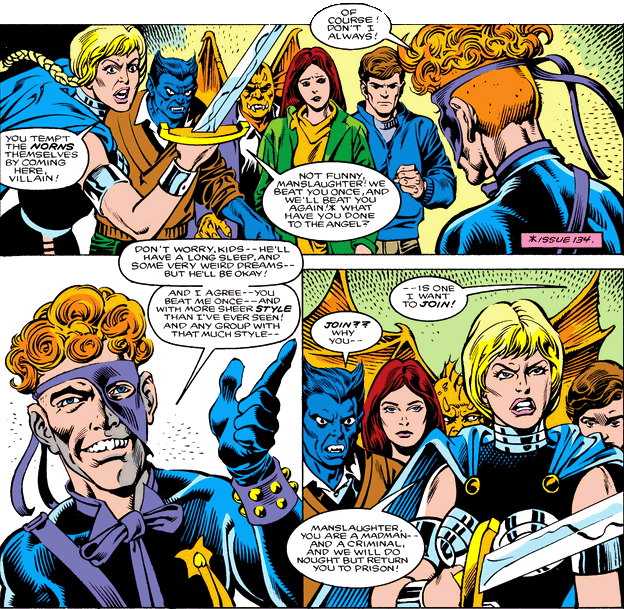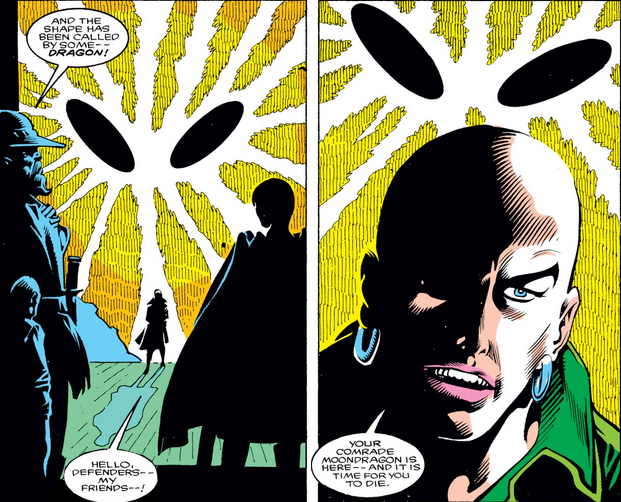Having gained a respite in their conflict with their fellow member, Moondragon, who had given herself over to a demon entity in dragon form and then viciously lashed out at them, things look grim for the new Defenders, who may not be able to save their comrade, or even themselves, if and when she renews her attack. In Part Two of this story, we learned that Moondragon had gone underground half a world away--visibly enraged at her circumstances, having surrendered herself to the Dragon of the Moon and admitted to it (and to herself) her willingness to embrace the evil it represented. There seems little if any redemption to salvage for this woman, who has had a stormy history with those she allied herself with and now has come after the last of those allies with a vengeance.
Back in New Mexico, the Defenders attempt to pull themselves together, their mansion a virtual shambles after the fierce battle while one of their members, the Angel, remains blinded from Moondragon's prior assault--but they have pressed on, reaffirming their commitment to the team even in the face of their past performance which has endangered local communities. In the time since, their newest member, Cloud, has departed, her origin having been solved at last--while the Atlantean warrior named Andromeda has replaced her in their ranks. But now, the arrival of the stranger known as the Interloper heralds danger anew, particularly in light of the appearance of his "disciple"--Manslaughter, a psychotic who very nearly killed all of the Defenders at one time but who seeks to stand with them at this, their darkest hour.


























